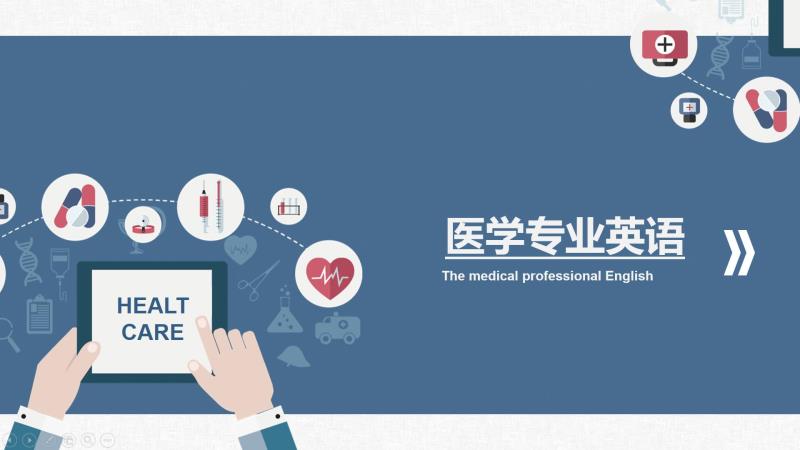
当前课程知识点:Research Methods in Tourism Studies > Week 6 Research Ethics > 6.2 Academic Ethics > 6.2.2 Student interview after class
返回《Research Methods in Tourism Studies》慕课在线视频课程列表
返回《Research Methods in Tourism Studies》慕课在线视频列表
你好 大卫 这个学期怎么样
你已经学完了研究方法这门在线课程
你有什么想说的吗
这个学期的学习非常好
虽然很难 但我很努力地通过了
太棒了
至于课程方面
我一直认为由多名教授讲授一门课程可以拓宽我们的视野
我认为这个堂课已经证明了这一点
现在 我能更容易区分不同类型的研究方法了
也更容易阅读学术文章了
总而言之 该课程完全符合我的预期
很高兴听你这么说
我很高兴你有所收获 并且从课程中学到了一些知识
那么 您最喜欢该课程的哪一部分呢
屈海林教授做了一个
关于旅游研究中新技术应用的演讲
我觉得很有趣
比如神经营销研究的应用
新技术如何塑造我们的产业 甚至研究
我总是对科技着迷
所以这是我最喜欢的一个部分
很好
屈教授讲授的是旅游领域的前沿问题h和新问题
学习这门课后 你还有什么问题吗
在课程中 我们有机会
对研究方法之间的区别有了大致的了解
我在想
您会不会针对这些研究方法再开设一门课程呢
你想知道 我们会不会开设一门
深入讲授特定研究方法的课程 对吗
没错
这是个好问题
正如我在课程开头提到的
这门课只是研究方法的一个总体介绍
因此 这只是一系列研究方法课程的一部分
在接下来的学期
想更加深入了解特定方法的学生推出高级研究方法课程
同时 我们也会更多的关于数据分析的技能
希望你也能加入我们接下来的高级研究方法课程
谢谢您
你对未来有什么计划呢
或者你从这门课程中获得了
哪些可以用于你未来学习的知识呢
毕业后
我想从事旅游业或咨询行业
很棒啊
我认为这门课非常有帮助 甚至对我未来的规划也很有帮助
因为 现在我具备了批判性思维
我知道如何分析数据
我认为这门课程也有助于我写各种报告
我认为这门课不仅对毕业后想留在学术界工作的人很有帮助
而且对那些想去行业工作的人也很有帮助
是的 这也是本课程设置的目标之一
我们希望研究方法
不仅对那些想要步入学术领域的学生有用
而且对那些正在从事咨询实践工作的学生也有用
谢谢你 大卫
祝你顺利毕业
也感谢你整个学期的陪伴
我希望我能在下一门课——高级研究方法中看到你
非常感谢你 刘博士 我也很期待
再次感谢大家收看和学习我们的研究方法课程
希望在接下来的系列课程——高级研究方法中见到大家
-1.1 Research Question and Research Objectives
--1.1.1 Student interview before class
--1.1.2 The starting point: question
--1.1.3 What is a good research question?
--1.1.4 Ways to find a good research question
-1.2 Title Design
--Acticle: Leisure & Travel as Class Signifier: Distinction Practices of China's New Rich
--Discussion: Why do we research?
-1.3 Literature Retrieval Method and Literature Databases
--1.3.1 Common literature retrieval method
--1.3.2 Common literature search database
-1.4 Information Collection and Academic Journals in Tourism
--1.4.1 Academic journals in tourism research
--1.4.2 Literature collection methods and principles
-1.5 Literature Reading
--1.5.2 Overcoming obstacles in literature reading
--Week 1 quiz
--Discussion: What difficulties have you encountered in reading literature?
-2.1 Philosophical Bases of the Two Approaches
--2.1.1 Philosophical bases of the two approaches
-2.2 Differences between the Two Approaches
--2.2.1 Differences between the two approaches
--Article: Does tourist–host social contact reduce perceived cultural distance?
-2.3 Be Aware of Your Own Research Views
--2.3.1 Be aware of your own research views
--Discussion: How to choose research method?
-2.4 Research Example: Social Tourism
--2.4.1 What is social tourism?
--2.4.2 Established frameworks on social tourism
--2.4.3 Major research findings on social tourism
--2.4.4 Major findings of social tourism research
--2.4.5 Opportunities and challenges for social tourism
--Week 2 quiz
- 3.1 Key Procedures in Qualitative Approach
--3.1.1 Key procedures in qualitative approach
-3.2 Qualitative Data Collection and Analysis
--3.2.1 Key procedures and data collection methods in qualitative approach
--3.2.2 Data collection and analysis in qualitative approach
--3.2.3 Data analysis in qualitative approach
-3.3 Case Study and Content Analysis
--Discussion: Have you ever used a qualitative approach in your research?
-3.4 Using Coding and Themes in Qualitative Research
--3.4.1 Using coding and themes in qualitative research(1)
--3.4.2 Using coding and themes in qualitative research(2)
-3.5 Using Conceptual Framework in Qualitative Research
--3.5.1 Using conceptual framework in qualitative research(1)
--3.5.2 Using conceptual framework in qualitative research(2)
--Article: Tourist typology in social contact: an addition to existing theories
--Week 3 quiz
--Discussion: How to ensure the reliability and validity of qualitative study?
-4.1 Using Questionnaires in Quantitative Research
--4.1.1 Make an effective literature review and research method design
--4.1.2 Learn to write powerful findings and discussion
-4.2 Using Experiment in Quantitative Research
--4.2.4 Eye tracking experiment
-4.3 Using Mixed Method
--4.3.1 Sustainabble tourism development (1)
--4.3.2 Sustainabble tourism development (2)
--Article:Creating a scale for assessing socially sustainable tourism
--Week 4 Quiz
--Discussion: How to use quantitative methods to study tourists' reaction?
-5.1 Current Research Priorities
--5.1 1 A review of hospitality research
--5.1.2 Impact of information technology on hospitality and tourism research
-5.2 Multi-Level/ Multiple Sources of Date Collection
--5.2.1 Experimental design (1)
--5.2.2 Experimental design (2)
--5.2.3 Multi-level/multiple sources of data collection
-5.3 Mixed Method and Interdisciplinary Research
--5.3.2 Interdisciplinary research
--Article: The meanings of destination: a Q method approach
--Discussion: Can you talk about your understanding of research methods?
-5.4 Using Delphi Method in Research Design
--5.4.1 What is the Delphi method?
--5.4.3 Characteristics of the Delphi method
--5.4.4 Predicting the future of wine tourism
--Week 5 quiz
--Discussion: Philosophical basis of research methods
-6.1 Journal Publication
--6.1.1 How to publish in the top journals? (1)
--6.1.2 How to publish in the top journals? (2)
--6.1.3 How to publish in the top journals? (3)
--6.1.4 How to publish in the top journals? (4)
--Article: Analyzing the economic sustainability of tourism development: evidence from Hong Kong
-6.2 Academic Ethics
--6.2.2 Student interview after class
--Week 6 quiz
--Discussion: Academic publication and academic ethics
--Final quiz

